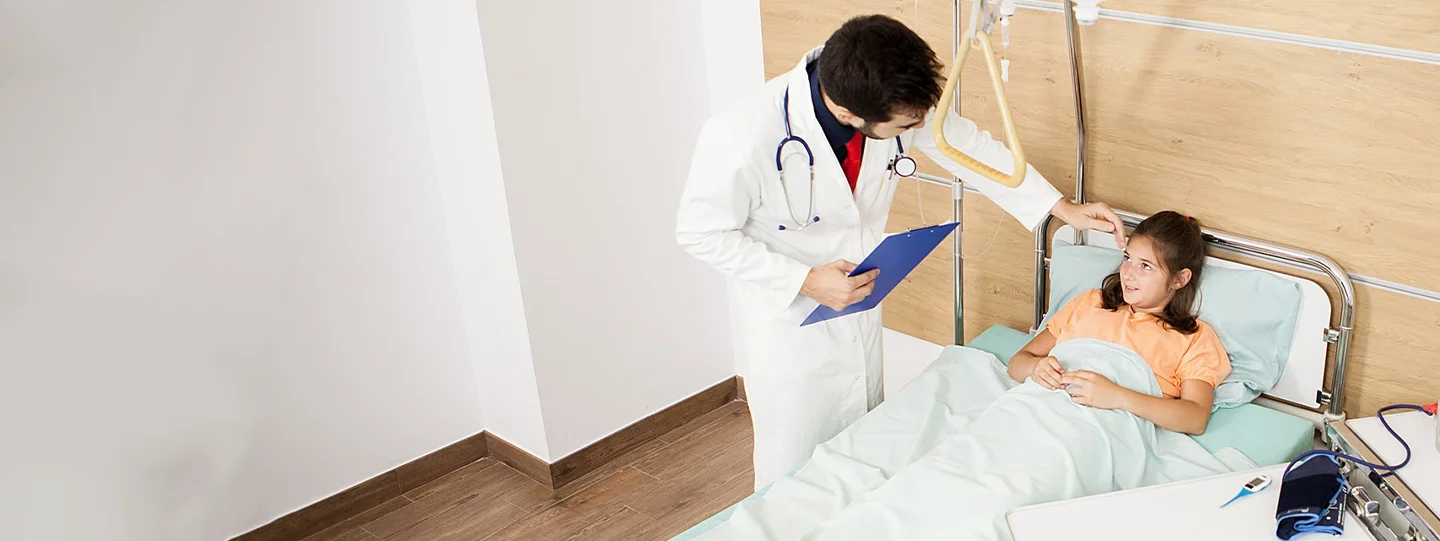

The PICU or pediatric intensive care unit is the unit in a hospital that is meant to deliver critical care to the children. The PICU's staff is specially trained in caring for children. This department functions similarly to the intensive care unit (ICU), where adults receive specialized care.
The equipment present in the PICU is meant particularly to treat children. Also, the environment is generally more child-oriented. This unit’s infrastructure and facilities deliver a level of care to the children that cannot be availed in other areas of the hospital.
Newborns, toddlers, kids, preteens, and teenagers are among the patients in the PICU. Children in critical condition come to the PICU for medical treatment and support. Patients in pediatric critical care units are mostly under 18 years old. However, certain people aged 18 to 21 years may also be treated in PICU if they are suffering from certain specific conditions that require the services of the PICU.
A NICU, or neonatal intensive care unit, is a type of ICU that is different from PICU in certain hospitals and is reserved exclusively for sick or premature newborn patients. However, sick newborns and infants are also treated in the PICU in hospitals without a NICU.
Common reasons behind the admission of children in the PICU include:
Post-surgical care is provided in PICU to speed-up a child's recovery after surgery. Here, patients receive medication, pain relief, and specialized monitoring. The team of specialists closely coordinate to address any complications as soon as they arise.
Lung and breathing problems of children are also managed in the PICU. To support respiratory function, children receive specialized monitoring and personalized care. Medication, mechanical ventilation, and other individualized treatments may be part of this. The committed PICU team collaborates closely to swiftly address these issues in order to maximize respiratory health and provide the best possible outcome for every child.
Accidental injuries are immediately responded to in the PICU with customized care. Doctors perform examinations, carry out required procedures like surgery or pain relief, and keep a careful eye on the patient's progress. The mainstay of the care is to speed up healing of damaged tissues and support the child's recovery.
Severe infections are handled rapidly and effectively in the PICU. Customized therapies, such as supportive therapies and antibiotics, are provided under close observation. The group of specialists works closely together to address the problems and improve the lives of the sick children.
Diabetes complications are also managed in the PICU with holistic care strategies. Along with treatment, children's blood sugar levels and other vital signs are closely monitored. Insulin therapy, electrolyte balance, and fluid management are part of the individualized interventions. The multidisciplinary team collaborates to tackle these intricate issues, with the goal of stabilizing the child’s condition and preventing additional complications. Their joint efforts are concentrated on enhancing outcomes and assisting the child's recovery.
Organ failure is addressed quickly and comprehensively in the PICU. Affected organs are stabilized with the aid of targeted interventions and continuous surveillance, such as medication and mechanical support. The multidisciplinary team collaborates to address challenges, concentrating on optimizing recovery while trying to stabilize the child and prevent further complications.
Cancer patients receive intensive and specialized care in the PICU. The child is stabilized with a range of specialized treatments, such as pain management and chemotherapy, and constant monitoring. The multidisciplinary team collaborates to address challenges and promote recovery while focusing on the best possible outcomes.
Epilepsy is treated in the PICU with personalized treatment regimens, which may involve specialized interventions and medication adjustments and continual evaluation. The team of specialists works closely together to maximize seizure control and enhance children's treatment outcomes.
Some children go home right after PICU discharge. However, many have to stay in the hospital for further, less-intense monitoring and follow-up care. Still, discharging from the PICU is amongst the important milestones for the child on the road to recovery. It indicates that a child is no longer in need of such close supervision, counseling, and/or nursing care.
Surya Hospitals provides you the best medical facilities, distinguished expertise, and one of the best PICUs in Mumbai for your child's best recovery from the ailment. Book your appointment now!
Q1: What is the difference between NICU and PICU?
A: Neonatal Intensive Care Units, or NICUs, are hospital departments that are dedicated to treating newborns exclusively. When a child needs the best possible pediatric care, they are admitted to the pediatric intensive care unit, or PICU.
Q2: Which patients are admitted in PICUs?
A: When a child's medical needs cannot be satisfied on the hospital's main medical floors and they require critical care, they are admitted to the pediatric intensive care unit (PICU).
Q3: What is the age limit for PICU?
A: Any child older than one month, up to 12 years old, and sometimes up to 18 years old, are treated in a pediatric intensive care unit.
